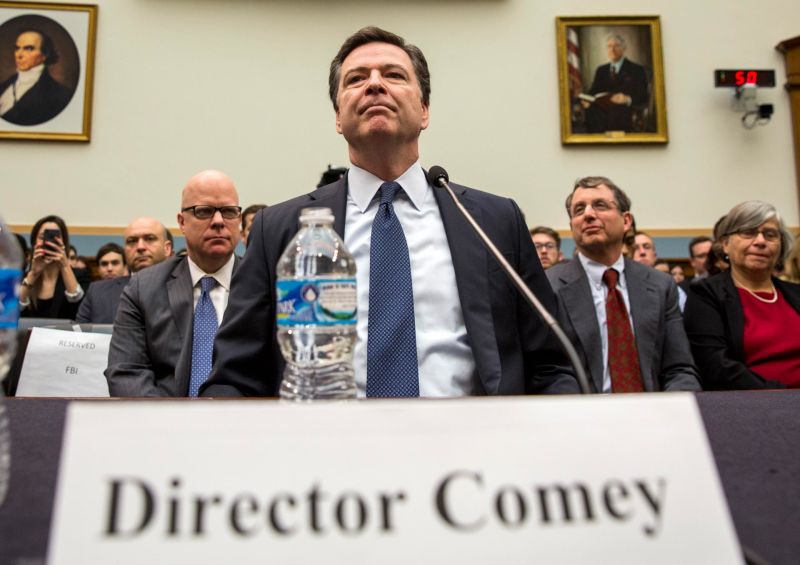"The line between personal privacy and public safety should be drawn by Congress, not Silicon Valley," New York County District Attorney Cyrus Vance, another witness at the hearing, says in his own prepared testimony. "In the absence of a uniform policy, our nation will effectively delegate the crafting of national security and law enforcement policy to boardrooms in Silicon Valley."
Apple, in turn, says the matter should be resolved by Congress instead of the court system, where it's currently pending.
"Should the FBI have the right to compel a company to produce a product it doesn't already make, to the FBI's exact specifications and for the FBI's use?" Sewell writes. "The decisions should be made by you and your colleagues as representatives of the people, rather than through a warrant request based on a 220-year-old statute."
Known as the All Writs Act, the statute has been used before to compel companies, including Apple, to cooperate with investigations, according to the Department of Justice.
The Justice Department has already searched the iCloud backups associated with the phone, but they stopped several weeks before the Dec. 2 attack. It's unclear what exactly might be on the phone, but U.S. attorneys general have told the federal court in California that Apple's cooperation is crucial in the investigation: The phone's security prevents the FBI from having a computer guess the PIN code and could wipe the phone clean after 10 wrong tries, so the FBI wants Apple to override those security protections.
Vance, representing the National District Attorneys Association, plans to tell the judiciary panel that Apple's switch in the fall of 2014 to stronger iPhone encryption by default "severely harms" prosecutions and investigations across the country. In his prepared remarks, he says his own office has currently been locked out of 175 Apple devices obtained in investigations of a murder, sexual child abuse, sex trafficking, child pornography, assault and robbery.
Though the FBI has underscored that it's requesting very targeted computer code for one particular iPhone that would never have to leave Apple's hands, Apple paints this case as a major precedent that would amount to creating a master key for its devices, which CEO Tim Cook has called the software "equivalent of cancer."
Tech companies, including Google, Facebook, Microsoft and others, are expected to file briefs in support of Apple in the U.S. District Court for the Central District of California, the Washington Post reports:
"Those involved say the swell of support is unparalleled, especially for a case at the magistrate judge level — the lowest level of the federal court system. The filings also indicate the level of anxiety among companies about the possibility of a legal precedent greatly expanding the limits of what the government can force a company to do in criminal and national security probes.
Meanwhile, law enforcement groups and families of some of the 14 killed in the Dec. 2 attack in San Bernardino, Calif., are filing briefs in support of the government.
Apple's public position got a boost on Monday in another legal standoff involving a drug case in Brooklyn. A magistrate judge there ruled against federal investigators, rejecting their request for an All Writs order compelling Apple to help them bypass an iPhone passcode. That ruling isn't binding in other courts and it dealt with a different set of technical requests, but it hits on a similar theme of government access to encrypted data.
In Congress, House Homeland Security Committee Chairman Michael McCaul, a Texas Republican, and Senate Intelligence Committee member Mark Warner, a Virginia Democrat, have introduced a bill that would create a National Commission on Security and Technology Challenges, which would consist of 16 "experts representing all of the interests at stake so we can evaluate and improve America's security posture as technology — and our adversaries — evolve."
U.S. attorneys are due to respond to Apple's latest filing regarding the San Bernardino iPhone by March 10, and a court hearing is scheduled for March 22.
Copyright 2016 NPR. To see more, visit http://www.npr.org/.
